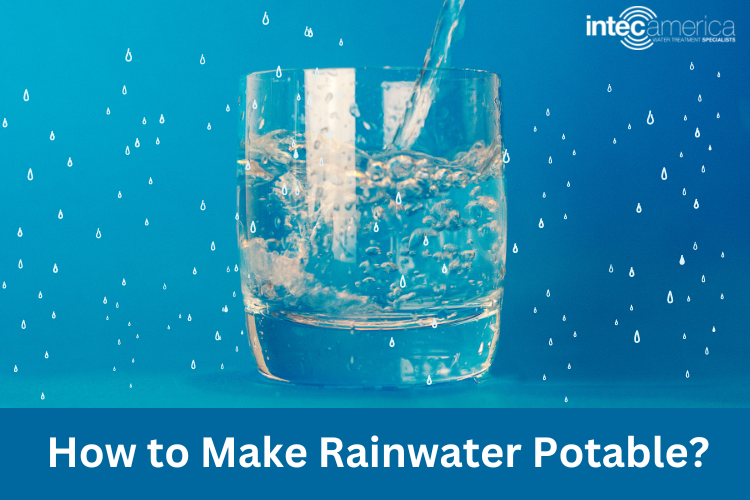How to Make Rainwater Suitable for Drinking?
Rainwater harvesting has gained priority in recent years. It has become a primary water source in many communities. Although harvested rainwater has been used for farming and various purposes, its utility for potable purposes has been widely debated. There is no definitive answer to this question as the safety of collecting rainwater for drinking depends on a number of factors. In general, rainwater is safe to drink if it is collected from a clean source and stored properly. This post aims to answer this question in detail.

Is Rainwater Good for Consumption?
Generally, rainwater is considered good for consumption. But, collecting rainwater for drinking is not recommended in certain areas, such as plumes of paper mills, power plants or areas where different crops are grown for consumption. These areas are highly contaminated and may affect the quality of ground water and rainwater. Similarly, rainwater runoff from buildings or production plants may not be suitable for consumption as they pick up contaminants from air or roofs. Rainwater collected in dirty containers or stored in unhygienic areas may not be suited for consumption.
Rainwater is one of the most accessible sources of water supply in many parts of the world. However, it may be contaminated with dust, microbes, and chemicals in many circumstances. Hence, it is always recommended to filter and disinfect rainwater before using it for drinking. The next section introduces you to several filtration systems, which would help improve the potability of rainwater to make it good for consumption.
How to treat rainwater for drinking?
As said before, the safety of rainwater may be affected by different factors, such as the frequency of rainfall in a particular geographic area, the methods and tools used for collection, level of contamination and so on. In general, rainwater may be laden with microbes such as viruses, parasites, and bacteria. They can be easily eliminated by boiling water. But many chemicals and particulate matter cannot be eliminated by boiling. This is where filtration systems can help. There are various filtration systems available on the market, and the one you choose will depend on your specific needs. However, most systems will use a combination of filters to remove contaminants, including:
- Carbon Filters: These filters feature activated carbon, which is known to remove organic chemicals from water. Some organic chemicals are known to alter the taste and odor of water.
- Sediment Filters: As the name suggests, these filters are used to remove sediments from water. They are not effective in removing heavy metals, chemicals, or any other contaminants in rainwater.
- UV Disinfection: These water treatment systems use ultraviolet light to disinfect microorganisms in water. The UV light penetrates into the cell membrane of a microorganism disrupting their regular functions and disinfecting them effectively. UV disinfection has proven to be effective against bacteria, viruses, and protozoa.
- Ozonation: These water treatment systems feature ozone generators. The ozone is injected into stored rainwater and it starts eliminating and oxidizing components such as viruses, metals, and bacteria.
- Reverse Osmosis: The rainwater is deionized or demineralized by passing through semi-reversible membrane. These water disinfection systems help remove various types of chemical contaminants.
It is important to get high quality filtration systems to treat harvested rainwater from trusted sources like Intec-America. This is because the quality of the filtration system will help improve the potability of rainwater. The better the quality of the filtration system, the purer the water will be. You can get in touch with the experts at the company to discuss your water treatment requirements.
Recent Blog Posts
- Know Everything About Rainwater Harvesting
- Microplastics in Drinking Water: Causes and Prevention Overview
- Mercury in Drinking Water – Causes, Effects, and Prevention Explained
- Salt-Free Water Softeners for Residential Water Treatments
- Installation of Whole House Water Filters
- Things You Must Know About pH Control and Drinking Water Treatment


